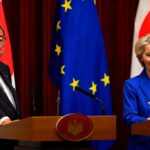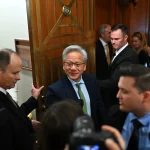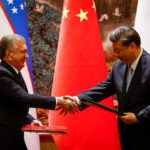Switzerland Clamps Down: Companies Can’t Escape Trump-Era Tariffs via Liechtenstein Loophole

Switzerland has issued a stern warning to its corporations: attempts to bypass U.S. tariffs by routing goods through the neighboring principality of Liechtenstein will not shield them from duties imposed under President Donald Trump’s trade policies. The clarification comes as Swiss exporters increasingly sought creative ways to sidestep tariffs on steel, aluminum, and other goods during ongoing trade tensions with the United States.
The Loophole Attempt
Since the introduction of Trump-era tariffs in 2018, certain European exporters explored re-routing shipments through smaller countries to exploit gaps in tariff enforcement. Liechtenstein, a microstate nestled between Switzerland and Austria with its own customs framework, appeared to offer a potential pathway to avoid punitive duties.
Some Swiss companies reportedly tried to label products as Liechtenstein-originating, believing that the U.S. Customs and Border Protection (CBP) might overlook the actual source. While the financial incentive was clear—avoiding tariffs on high-value goods—the U.S. has consistently enforced rules that target the true country of origin, not merely the point of shipment.
Swiss Authorities Step In
The Swiss State Secretariat for Economic Affairs (SECO) issued guidance emphasizing that any attempt to misrepresent the origin of goods is illegal and could expose companies to serious legal and financial consequences. SECO warned:
“Rerouting goods through Liechtenstein does not exempt companies from U.S. tariffs. All exporters must comply with international trade regulations and accurately declare the origin of their products.”
Swiss officials stressed that this guidance is intended to protect companies from potential fines, seizure of goods, or reputational damage in the U.S. market.
Implications for Swiss Businesses
For Swiss manufacturers, particularly in machinery, chemicals, and precision instruments, Trump-era tariffs remain a significant cost factor. Attempting to circumvent them through routing tricks could:
- Invalidate insurance or shipping contracts
- Trigger audits and fines from U.S. authorities
- Damage relationships with American buyers and distributors
While tariffs may reduce profit margins, compliance with international trade law is critical to maintaining market access. SECO’s warning signals that Swiss businesses must factor in tariffs as a cost of doing business rather than hoping for loopholes.
U.S. Perspective
U.S. Customs and Border Protection has repeatedly clarified that tariff rules target the actual country of production. Products genuinely manufactured in Liechtenstein might not face the same duties, but Swiss-origin goods misrepresented as Liechtenstein-originating could face penalties, seizure, or retroactive duties.
CBP spokespersons have highlighted that “country of origin is determined by the place where the goods are substantially transformed,” a standard that makes simple re-routing ineffective as a tariff-avoidance strategy.
A Broader Warning to Global Exporters
Switzerland’s move highlights a broader lesson for companies worldwide: tariff evasion through creative routing is risky and often counterproductive. In an era of heightened trade scrutiny, governments are monitoring supply chains more closely, leveraging customs data, and cooperating internationally to detect misdeclarations.
Legal experts suggest that businesses exploring cross-border trade strategies should invest in compliance audits, supply chain transparency, and strategic pricing adjustments rather than attempting to exploit technicalities.
Conclusion
Switzerland’s warning makes it clear: Liechtenstein is no escape hatch for U.S. tariffs. Swiss companies must adapt to the new trade reality, recalibrate cost structures, and accept that compliance, rather than evasion, is the safest route to protecting their access to the American market.
The episode serves as a reminder that in global trade, tiny loopholes rarely withstand scrutiny, and international rules—especially those of the United States—are enforced rigorously.
















